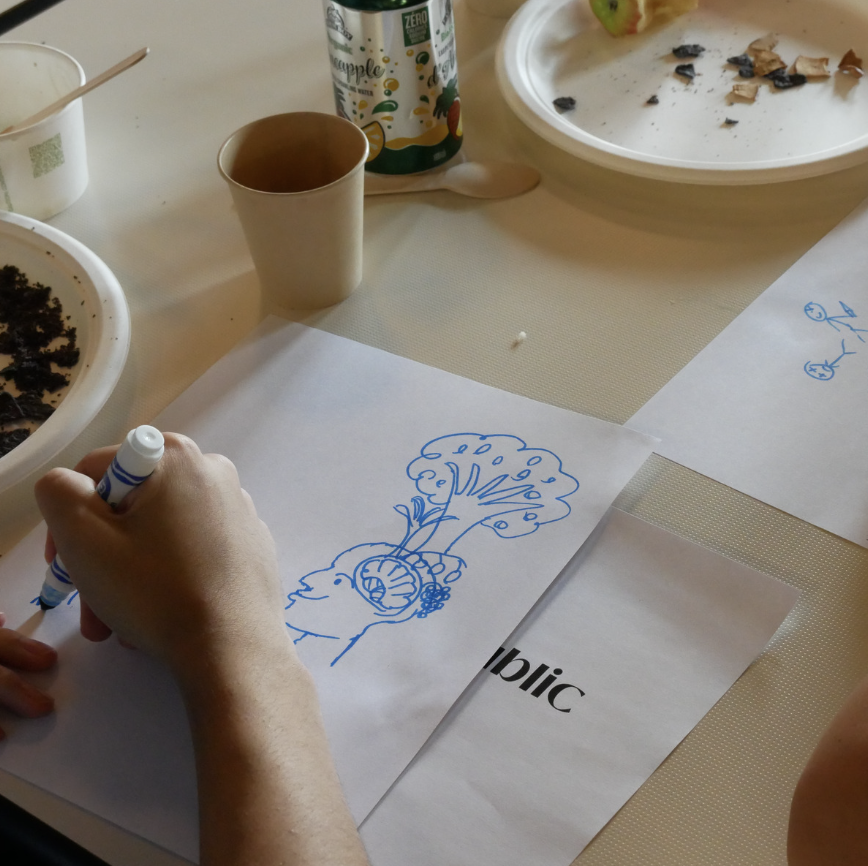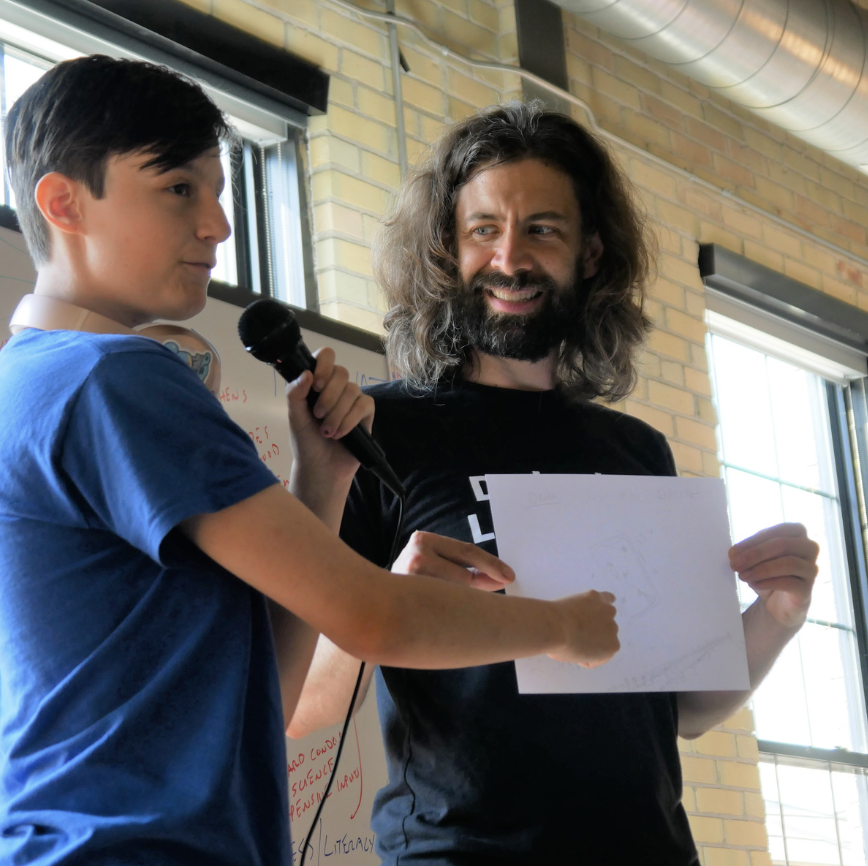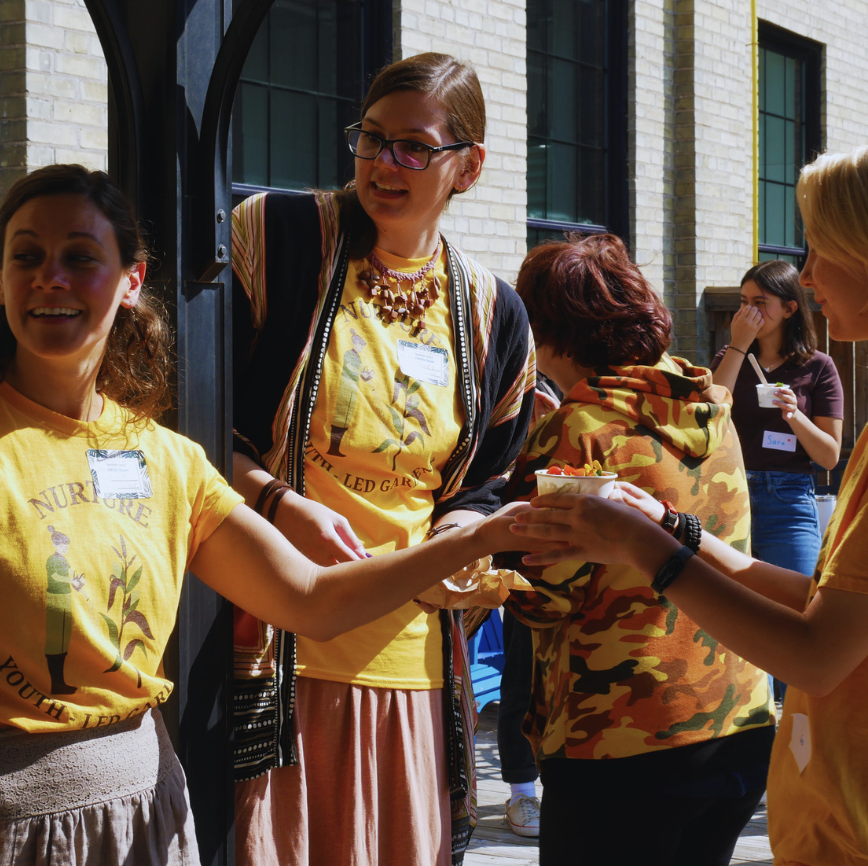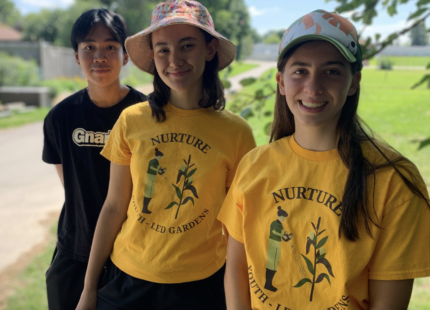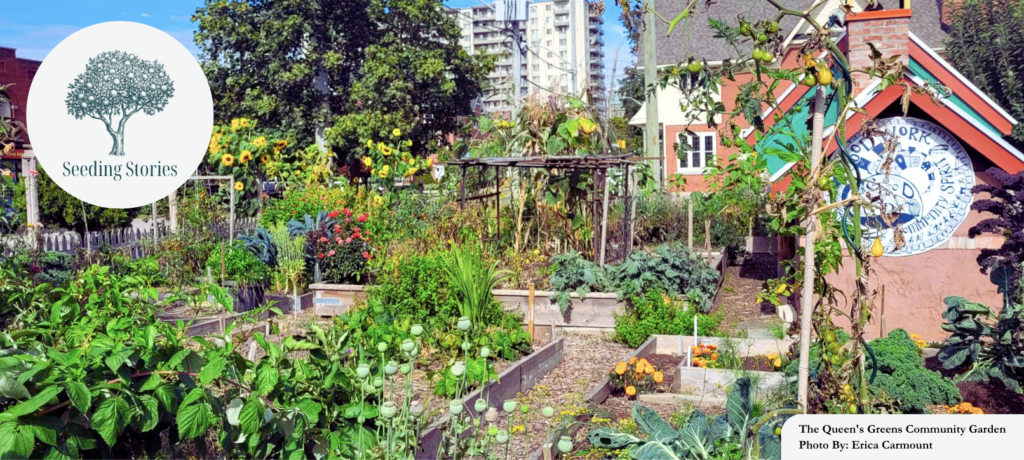
By: Erica Carmount
Published: November 24, 2023
Photos by: Christine Frim, Smart Waterloo Region Innovation Lab
In todays industrialized food system, many people, including youth, have limited autonomy when it comes to choices surrounding the location, production, and consumption of their food (Glover & Sumberg, 2020).
In recognition of these unique challenges, youth-focused social innovation labs in Waterloo Region are supporting youth in activating solutions.
Sriranjini Raman came up with one such solution as an undergraduate student participating in a Design Sprint with GreenHouse Innovation Lab (United College, University of Waterloo). Raman and her team identified three major challenges that youth in Waterloo Region often face:
1. Lack of access to healthy food;
2. Lack of knowledge of how to grow food and other basic food literacy skills, and;
3. Poor mental health from a lack of access and meaningful connection to the land (known as Nature Deficit Disorder).
Through the process of innovation focused on these challenges, Raman and her team landed on one solid idea: to turn Waterloo Region into a sustainable food forest! From there, the Nurture project was born.
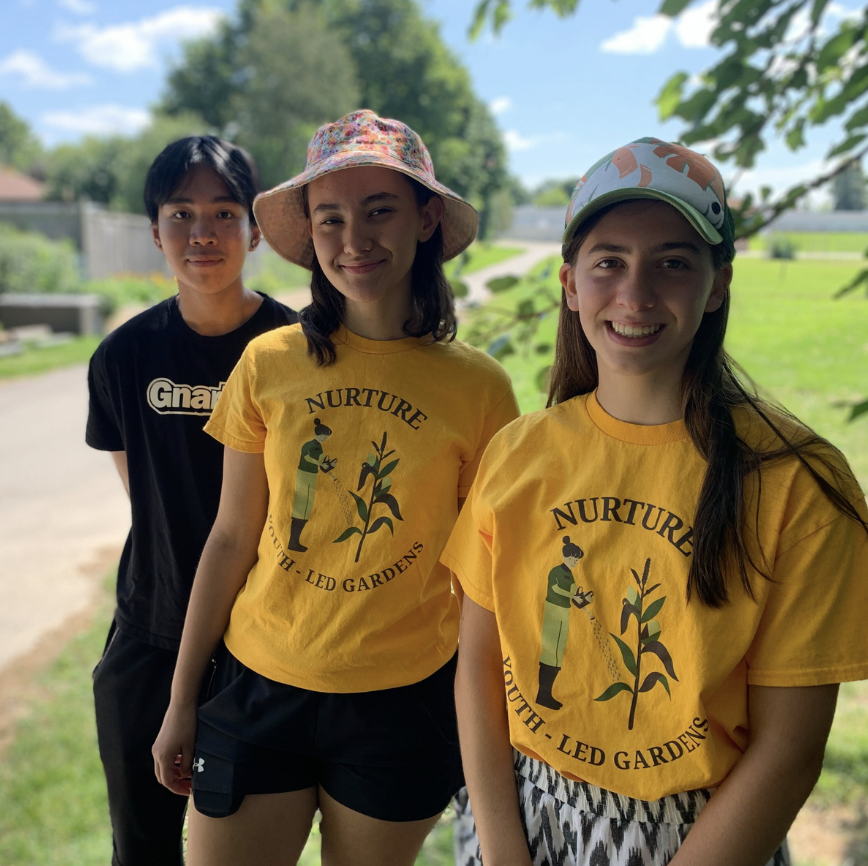
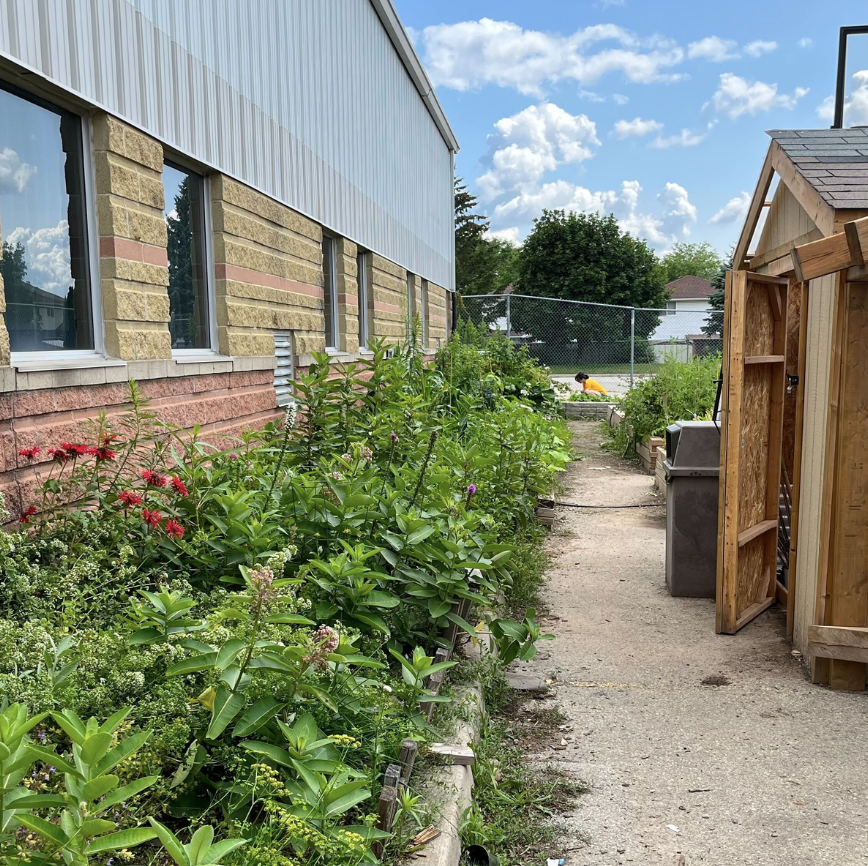
In 2022, Smart Waterloo Region Innovation Lab (SWRIL), which focuses on activating youth innovations to make Waterloo Region the best place for children and youth, picked up Nurture. Savannah Mastrotto, Youth Engagement Coordinator at SWIRL, was surprised by the degree to which students felt detached from green spaces due to their devices and busy schedules. “We’re in a new age”, commented Mastrotto, “where kids feel disconnected. I see this program as a way to end that”. SWRIL’s Nurture program now offers training and financial stipends to youth-led teams charged with tending and improving school gardens over the summer break. In 2023, Nurture partnered with Seeds of Diversity’s Youth in Food Systems program (YFS) to get Nurture support teams into 10 of the gardens YFS historically helped fund and start. Nurture and YFS now run complimentary programs that empower youth to grow their own food, foster positive mental health, and distribute food through youth-led food markets. This winter, Nurture will also be piloting its first youth-led Food Forest designs, with plantings scheduled for this coming spring.
“I learned how to grow food and the process of putting that food into the food system, putting it back into the community”.
-Leo (16, garden co-lead)
YFS has funded the creation of over 45 school food gardens across Waterloo Region since 2021 in an effort to promote food literacy and local food awareness to elementary and secondary students. While many of these school gardens have flourished, many have faced significant practical challenges due to the lack of attention over the summer months. Training and supporting youth-led garden teams through the Nurture program has helped fill this gap.
The key takeaways of the program, according to Nurture and Food Forest Garden Lead Nikola Barsoum, are to be able to offer youth opportunities to feel efficient in their food growing skills so that they can feel more connected to the land and develop a sense of belonging to it.
The program also helps to foster a sense of empowerment through the programs Near Peer leadership model that pairs high school students with elementary school students. This mentorship opportunity gives youth the chance to develop garden schedules, learn leadership and teamwork skills, and connect mentees to resources; opportunities that are not often given to students in the schooling system.
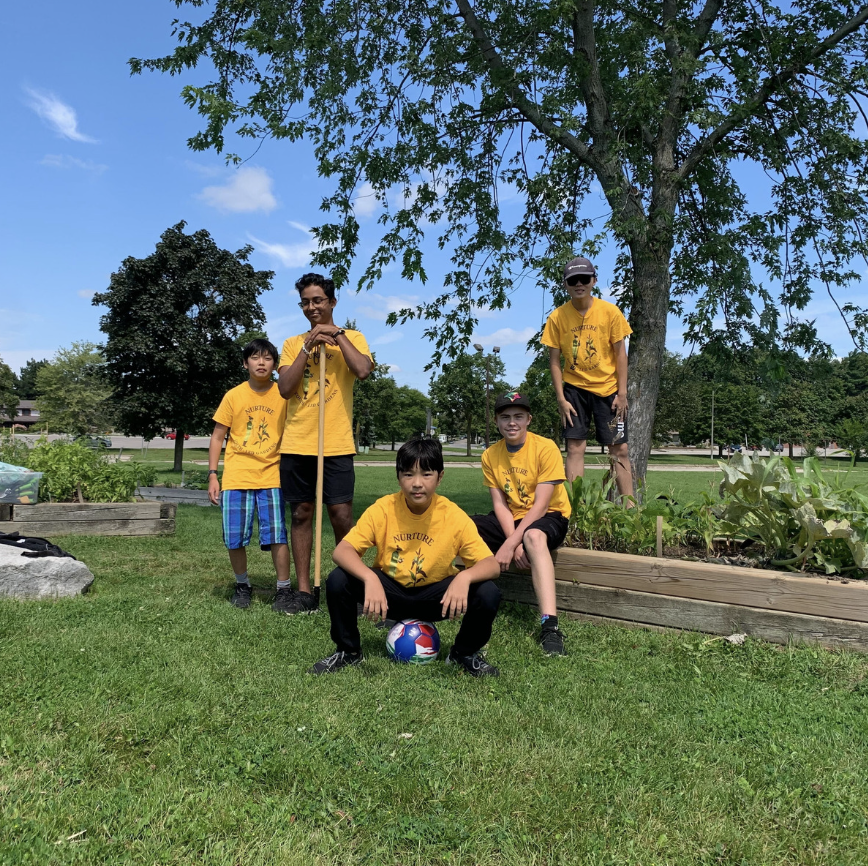
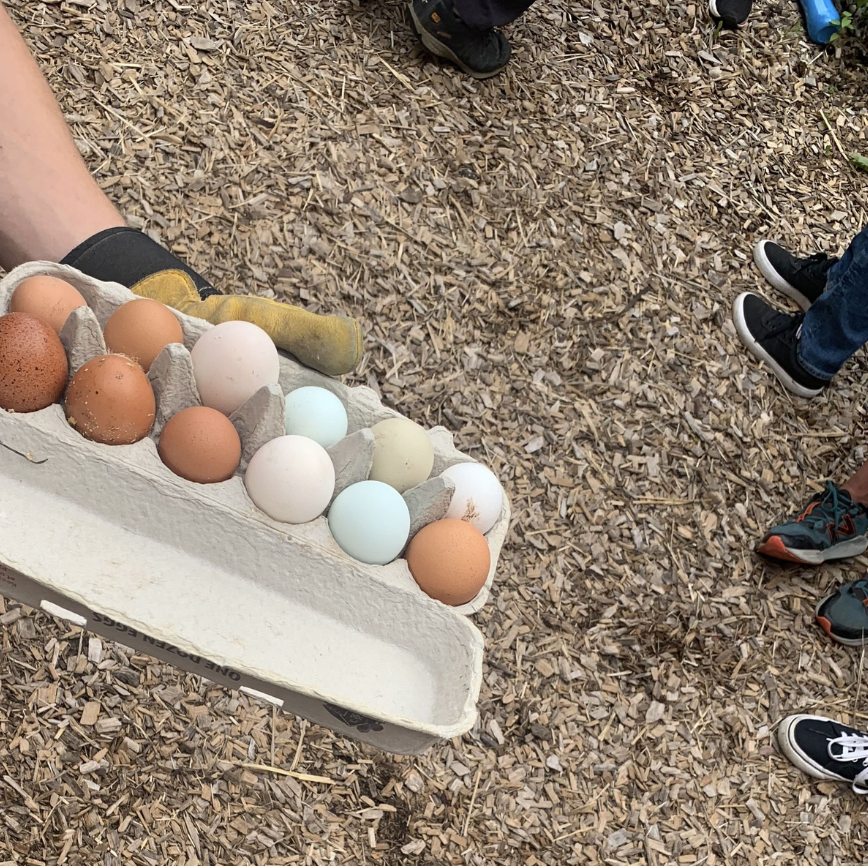
I think that’s why it’s successful as well. We do offer students a stipend, but it’s way more than that, the passion doesn’t just come from money. They are passionate to figure out these issues and feel connected to them.
-Nikola Barsoum
Priyanshi, 14, grew up watching her dad garden at home. Through the Nurture program, Priyanshi appreciated the opportunity to take the lead on her own garden team at Centennial Public School. She also further developed her skills in the seven workshops held at gardens sites by Youth in Food Systems on topics such as plant and soil health, permaculture, pollinators, and seed saving.
Connection and empowerment also play an important role in easing the pressure that young people feel today to figure out their lives. “High school students are under so much pressure”, commented Barsoum, “the gardens are intended to be a place for youth to feel good, an activity that they like to do versus something to do under pressure”. Teens today are under more pressure than ever to be perfect and fulfil others’ expectations, whether it’s in school, on social media or for their parents and peers (Simmons, 2018).
Other sources of stress stem from the fact that today’s youth are on the front lines of some of societies greatest challenges, including the intensification of biodiversity loss and climate change (Glover & Sumberg, 2020).
Gardening provides a sense of relief and illustrates how capable youth are. By offering them a different set of skills to pick and choose their own journeys and resources, youth are able to expand their knowledge base and achieve more. For 17-year-old Dante, a grade 12 student about to go off to university, gardening became a great strategy to stay active during the summer. From watering, harvesting and weeding plants, Dante found the experience both relaxing and fun.
On September 23, Nurture hosted an end-of-season celebration to bring together this year’s youth gardeners, market leaders, partners, family, organizational supporters, and facilitators. The celebration was also an opportunity for youth to collectivity showcase their work and share their learned knowledge of local food systems. Through a speed innovation exercise, youth were able to identify ways to connect with the local food system, like community gardens and food markets, and different ways in which food can be accessed, such as farms, food forests, and backyard gardens. Participants also brainstormed ways to form connections with nature and their community, proposing ideas such as planting trees, hosting information sessions, and foraging local plants.
Many adults in the room expressed their inspiration, including the executive chef and owner of the Wooden Boat Food Company in Kitchener, Chef Thompson. During the event, Thompson led a cooking demonstration for the young gardeners using the produce they had grown over the summer to show how easy cooking with local ingredients can be. In a speech to the onlooking youth, Thompson stated, “by supporting local businesses and supporting local food, you are leveling the playing field in your community by bringing food back to it”.
Youth-led programs like those provided by SWRIL and Seeds of Diversity are on the front lines of changing how youth participate and engage in social issues that directly affect them. Through the process of innovation, youth are not only learning about the issues of food insecurity, but they are also learning about it from the position of empowerment and connection by actively doing something about it.
